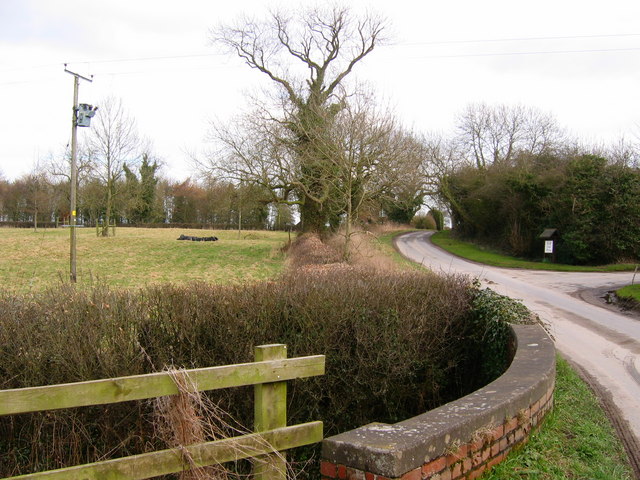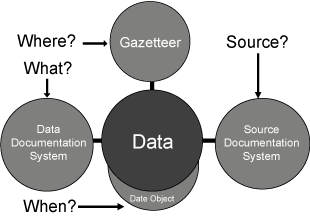|
Little Kelk
Little Kelk is a small Hamlet (place), hamlet in the civil parish of Kelk, East Riding of Yorkshire, Kelk, in the East Riding of Yorkshire, England. It is situated approximately south-west of Bridlington town centre. History In 1823 Little Kelk inhabitants numbered 51, two being farmers. Little Kelk was formerly an extra-parochial tract, in 1858 Little Kelk became a separate civil parish, on 1 April 1935 the parish was abolished and merged with Great Kelk to form "Kelk". In 1931 the parish had a population of 51. References * External links * Hamlets in the East Riding of Yorkshire Former civil parishes in the East Riding of Yorkshire {{EastRiding-geo-stub ... [...More Info...] [...Related Items...] OR: [Wikipedia] [Google] [Baidu] |
Kelk, East Riding Of Yorkshire
Kelk is a civil parish in the East Riding of Yorkshire, England. It is situated to the south-west of Bridlington town centre and covering an area of . The civil parish is formed by the village of Great Kelk and the hamlet of Little Kelk. According to the 2011 UK census, Kelk parish had a population of 158, a decrease on the 2001 UK census A nationwide census, known as Census 2001, was conducted in the United Kingdom on Sunday, 29 April 2001. This was the 20th UK census and recorded a resident population of 58,789,194. The 2001 UK census was organised by the Office for National ... figure of 180. References * Civil parishes in the East Riding of Yorkshire {{EastRiding-geo-stub ... [...More Info...] [...Related Items...] OR: [Wikipedia] [Google] [Baidu] |
East Riding Of Yorkshire
The East Riding of Yorkshire, or simply East Riding or East Yorkshire, is a ceremonial county and unitary authority area in the Yorkshire and the Humber region of England. It borders North Yorkshire to the north and west, South Yorkshire to the south-west, and Lincolnshire to the south. The coastal towns of Bridlington, Hornsea and Withernsea are popular with tourists, the town of Howden contains Howden Minster, Market Weighton, Pocklington, Brough, Hedon and Driffield are market towns with markets held throughout the year and Hessle and Goole are important port towns for the county. The port city of Kingston upon Hull is an economic, transport and tourism centre which also receives much sea freight from around the world. The current East Riding of Yorkshire came into existence in 1996 after the abolition of the County of Humberside. The county's administration is in the ancient market town of Beverley. The landscape is mainly rural, consisting of rolling hil ... [...More Info...] [...Related Items...] OR: [Wikipedia] [Google] [Baidu] |
East Yorkshire (UK Parliament Constituency)
East Yorkshire is a county constituency for the House of Commons of the Parliament of the United Kingdom. It elects one Member of Parliament (MP) at least once every five years by the first-past-the-post electoral system. The constituency has been represented by Greg Knight of the Conservative Party since the 2001 general election. History The East Yorkshire constituency was created for the 1997 general election and replaced the Bridlington constituency. The Conservative MP for that seat since 1979, John Townend, won the new seat and held it until he retired at the 2001 general election. His successor, the current incumbent Greg Knight, had previously represented the marginal seat of Derby North from 1983 until he was defeated in the 1997 general election. To date it has been a Conservative safe seat A safe seat is an electoral district (constituency) in a legislative body (e.g. Congress, Parliament, City Council) which is regarded as fully secure, for either a certain ... [...More Info...] [...Related Items...] OR: [Wikipedia] [Google] [Baidu] |
Hamlet (place)
A hamlet is a human settlement that is smaller than a town or village. Its size relative to a parish can depend on the administration and region. A hamlet may be considered to be a smaller settlement or subdivision or satellite entity to a larger settlement. The word and concept of a hamlet has roots in the Anglo-Norman settlement of England, where the old French ' came to apply to small human settlements. Etymology The word comes from Anglo-Norman ', corresponding to Old French ', the diminutive of Old French ' meaning a little village. This, in turn, is a diminutive of Old French ', possibly borrowed from ( West Germanic) Franconian languages. Compare with modern French ', Dutch ', Frisian ', German ', Old English ' and Modern English ''home''. By country Afghanistan In Afghanistan, the counterpart of the hamlet is the qala ( Dari: قلعه, Pashto: کلي) meaning "fort" or "hamlet". The Afghan ''qala'' is a fortified group of houses, generally with its ... [...More Info...] [...Related Items...] OR: [Wikipedia] [Google] [Baidu] |
Civil Parish
In England, a civil parish is a type of Parish (administrative division), administrative parish used for Local government in England, local government. It is a territorial designation which is the lowest tier of local government below districts of England, districts and metropolitan and non-metropolitan counties of England, counties, or their combined form, the Unitary authorities of England, unitary authority. Civil parishes can trace their origin to the ancient system of Parish (Church of England), ecclesiastical parishes, which historically played a role in both secular and religious administration. Civil and religious parishes were formally differentiated in the 19th century and are now entirely separate. Civil parishes in their modern form came into being through the Local Government Act 1894, which established elected Parish councils in England, parish councils to take on the secular functions of the vestry, parish vestry. A civil parish can range in size from a sparsely ... [...More Info...] [...Related Items...] OR: [Wikipedia] [Google] [Baidu] |
Bridlington
Bridlington is a coastal town and a civil parish on the Holderness Coast of the North Sea in the East Riding of Yorkshire, England. It is about north of Hull and east of York. The Gypsey Race enters the North Sea at its harbour. The 2011 Census gave a parish population of 35,369. As a sea-fishing port, it is known for shellfish, and is the largest lobster port in Europe, with over 300 tonnes of the crustaceans landed there each year. It has been termed the "Lobster Capital of Europe". Alongside manufacturing, retail and service firms, its main trade is summer tourism. It is twinned with Millau, France, and until 2020 was twinned with Bad Salzuflen, Germany. It holds one of the UK's coastal weather stations. The Priory Church of St Mary and associated Bayle (or gate) are Grade I listed buildings on the site of an Augustinian Priory. History Archaeological evidence shows habitation in the Bronze Age and in Roman Britain. The settlement after the Norman conquest was called '' ... [...More Info...] [...Related Items...] OR: [Wikipedia] [Google] [Baidu] |
Little Kelk 1
Little is a synonym for small size and may refer to: Arts and entertainment * ''Little'' (album), 1990 debut album of Vic Chesnutt * ''Little'' (film), 2019 American comedy film *The Littles, a series of children's novels by American author John Peterson ** ''The Littles'' (TV series), an American animated series based on the novels Places *Little, Kentucky, United States *Little, West Virginia, United States Other uses *Clan Little, a Scottish clan *Little (surname), an English surname *Little (automobile), an American automobile manufactured from 1912 to 1915 *Little, Brown and Company, an American publishing company * USS ''Little'', multiple United States Navy ships See also * * * Little Mountain (other) * Little River (other) *Little Island (other) Little Island can refer to: Geographical areas Australia * Little Island (South Australia) * Little Island (Tasmania) * Little Island (Western Australia) Canada * Little Island (Lake Kagawong), Ontari ... [...More Info...] [...Related Items...] OR: [Wikipedia] [Google] [Baidu] |
Extra-parochial Tract
In England and Wales, an extra-parochial area, extra-parochial place or extra-parochial district was a geographically defined area considered to be outside any ecclesiastical or civil parish. Anomalies in the parochial system meant they had no church or clergymen and were therefore exempt from payment of poor or church rates and usually tithes. They were formed for a variety of reasons, often because an area was unpopulated or unsuitable for agriculture, but also around institutions and buildings or natural resources. Extra-parochial areas caused considerable problems when they became inhabited as they did not provide religious facilities, local governance or provide for the relief of the poor. Their status was often ambiguous and there was demand for extra-parochial areas to operate more like parishes. Following the introduction of the New Poor Law, extra-parochial areas were effectively made civil parishes by the Extra-Parochial Places Act 1857 and were eliminated by the Poor L ... [...More Info...] [...Related Items...] OR: [Wikipedia] [Google] [Baidu] |
A Vision Of Britain Through Time
The Great Britain Historical GIS (or GBHGIS) is a Spatial Database, spatially enabled database that documents and visualises the changing human geography of the British Isles, although is primarily focussed on the subdivisions of the United Kingdom mainly over the 200 years since the first Census Act 1800, census in 1801. The project is currently based at the University of Portsmouth, and is the provider of the website ''A Vision of Britain through Time''. NB: A "GIS" is a geographic information system, which combines map information with statistical analysis, statistical data to produce a visual picture of the iterations or popularity of a particular set of statistics, overlaid on a map of the geographic area of interest. Original GB Historical GIS (1994–99) The first version of the GB Historical GIS was developed at Queen Mary, University of London between 1994 and 1999, although it was originally conceived simply as a mapping extension to the existing Labour Markets Database ... [...More Info...] [...Related Items...] OR: [Wikipedia] [Google] [Baidu] |
Great Kelk
Great Kelk is a village and former civil parish, now in the parish of Kelk, in the East Riding of Yorkshire, England. It is situated approximately south-west of Bridlington. In 1931 the parish had a population of 117. In 1823 Great Kelk inhabitants numbered 158. Occupations included eight farmers, a gardener, a shoemaker, and the landlord of the Board public house. Great Kelk was formerly a township in the parish of Foston-on-the-Wolds, from 1866 Great Kelk was a civil parish in its own right, on 1 April 1935 the parish was abolished and merged with Little Kelk Little Kelk is a small Hamlet (place), hamlet in the civil parish of Kelk, East Riding of Yorkshire, Kelk, in the East Riding of Yorkshire, England. It is situated approximately south-west of Bridlington town centre. History In 1823 Little ... to form "Kelk". References * External links * Villages in the East Riding of Yorkshire Former civil parishes in the East Riding of Yorkshire {{Eas ... [...More Info...] [...Related Items...] OR: [Wikipedia] [Google] [Baidu] |
Hamlets In The East Riding Of Yorkshire
A hamlet is a human settlement that is smaller than a town or village. Its size relative to a parish can depend on the administration and region. A hamlet may be considered to be a smaller settlement or subdivision or satellite entity to a larger settlement. The word and concept of a hamlet has roots in the Anglo-Norman settlement of England, where the old French ' came to apply to small human settlements. Etymology The word comes from Anglo-Norman ', corresponding to Old French ', the diminutive of Old French ' meaning a little village. This, in turn, is a diminutive of Old French ', possibly borrowed from (West Germanic) Franconian languages. Compare with modern French ', Dutch ', Frisian ', German ', Old English ' and Modern English ''home''. By country Afghanistan In Afghanistan, the counterpart of the hamlet is the qala (Dari: قلعه, Pashto: کلي) meaning "fort" or "hamlet". The Afghan ''qala'' is a fortified group of houses, generally with its own co ... [...More Info...] [...Related Items...] OR: [Wikipedia] [Google] [Baidu] |


.jpg)

